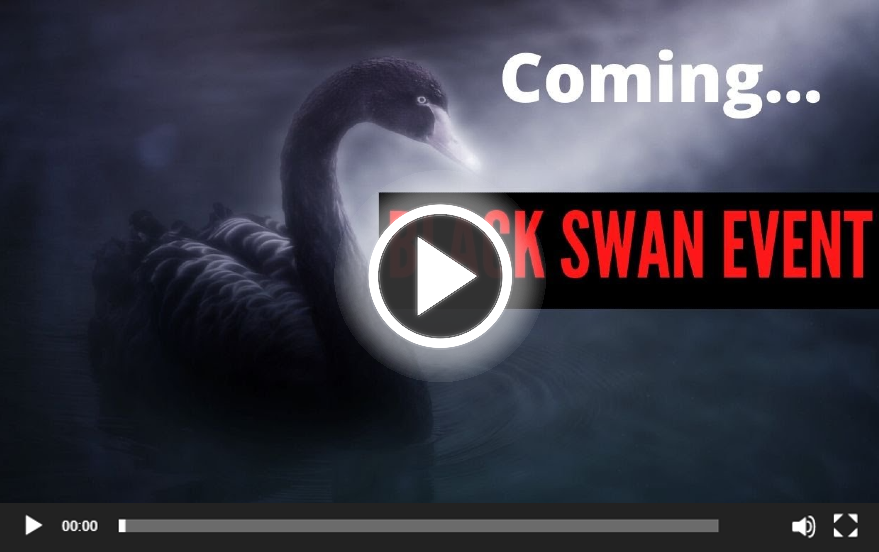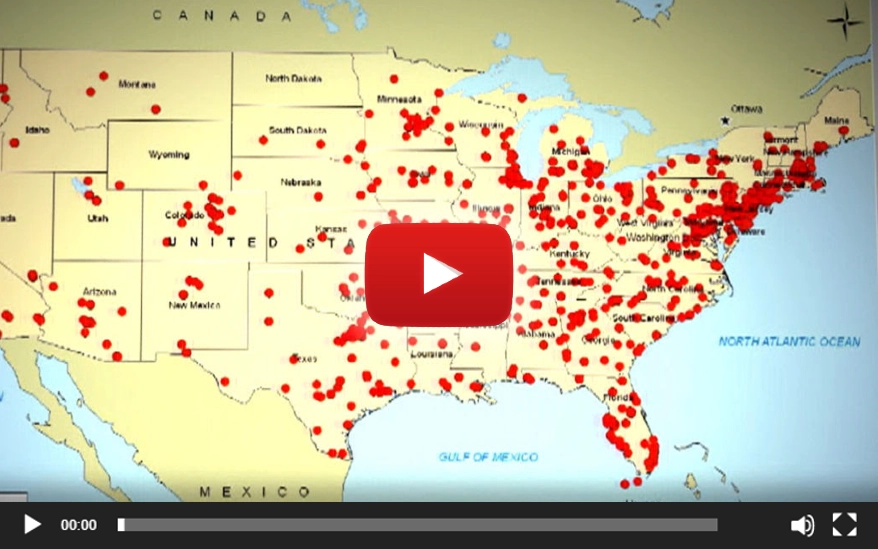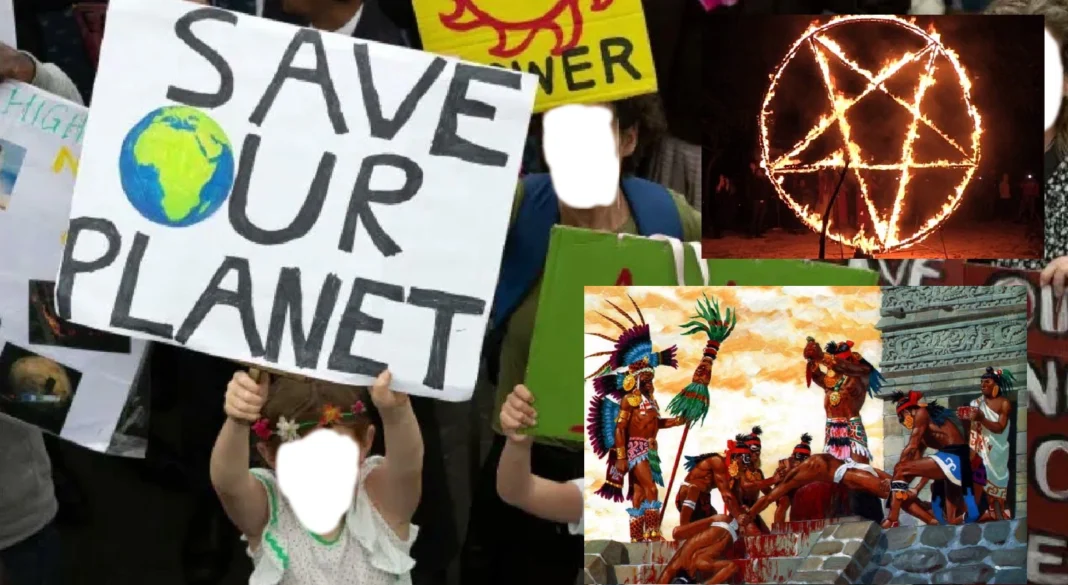Let’s cut to the chase: the modern environmentalist movement is not just about saving trees or reducing carbon footprints. It’s a full-blown, quasi-religious crusade, a cult-like phenomenon that’s sweeping across the globe with the fervor of a wildfire. And it’s not just about climate change or protecting endangered species. No, this movement has morphed into something far more insidious, something that echoes the dark practices of ancient civilizations.
Remember how ancient cultures, like the Aztecs, engaged in human sacrifices to appease their gods and control the weather? Fast forward to today, and you’ll see the environmentalist movement, in its extreme forms, exhibiting similar traits. This isn’t just about being eco-friendly; it’s about a deep-seated belief that humanity itself is a blight upon the earth.
Take the Just Stop Oil movement, for instance. In October 2022, they targeted Vincent Van Gogh’s “Sunflowers” in the National Gallery, London. This wasn’t just a protest; it was a symbolic act, a declaration that their cause transcends even the most revered artifacts of human civilization. These activists aren’t just fighting for cleaner air; they’re waging a war against humanity’s achievements, our history, our very existence.
But let’s not be naive. Of course, we need to protect our environment. We need clean air, water, and a planet that can sustain life. However, the environmentalist movement, in its extreme form, isn’t just about preservation. It’s about control. It’s about imposing a new world order under the guise of environmental protection.
Must see! – Alarm Bells Ringing: The Radical Environmental Movement’s Path to Global Anarchy!

Consider the economic implications. The push to cut carbon emissions, while noble in intent, has real-world consequences. It drives up energy costs, stifles economic growth, and disproportionately affects the poorest among us. Instead of focusing on tangible solutions like improving sanitation or providing clean water, the movement fixates on the nebulous concept of ‘global warming.’
And let’s talk about the dogma. Question the climate change narrative, and you’re labeled a heretic, a denier. It’s reminiscent of the Salem Witch Trials or the Spanish Inquisition. Dissent is not tolerated. You’re either with them or against them. This isn’t science; it’s zealotry.
The irony is that the environmentalist movement, in its extreme form, has become what it claims to despise: a force of oppression, a threat to freedom. Franklin Delano Roosevelt once said, “necessitous men are not free men.” The environmentalist crusade, in its quest to save the planet, is creating a world of necessitous men and women, bound by fear and driven by a doctrine that brooks no opposition.
So, what’s the endgame? It’s not just about reducing our carbon footprint or saving the polar bears. It’s about reshaping society, about redefining what it means to be human. It’s a crusade, a holy war against humanity itself. And like all crusades, it’s driven by a belief that the ends justify the means, no matter the cost.
This is where the true horror of this extremist environmentalist ideology becomes starkly apparent. It’s a narrative that doesn’t just flirt with the idea of human reduction; it embraces it wholeheartedly. The sanctity of human life, a principle that has been the cornerstone of civilized societies, is being eroded under the guise of environmental stewardship.
Important! – From Protests to Nuclear Power: The Dangerous Evolution of Radical Environmentalism!

The ‘greenie elites’ of Western democracies are pushing an agenda that is as shocking as it is misguided. They promote the idea that forgoing children and even having an abortion is an act of environmental heroism. Childless women are lauded for reducing the carbon footprint of civilization. This narrative is not just a fringe belief; it’s becoming mainstream, influencing young generations to make life-altering decisions based on a misguided sense of duty to the planet.
Tragically, this mindset has led to young women terminating their pregnancies in the belief that they are serving a greater environmental cause. One woman told a newspaper that not having a child was the most environmentally friendly action she could take. Another woman, who terminated her pregnancy, justified her decision by stating that every new human being adds to the problem of overpopulation, consuming more resources and exacerbating environmental issues.
The roots of this alarming trend can be traced back to the influential works of ecologist Paul Ehrlich. In his 1968 book ‘The Population Bomb’, Ehrlich echoed the Malthusian fears of overpopulation leading to worldwide famine. He called for immediate action to limit population growth. Despite his dire predictions proving unfounded, as food and resource access increased with the global population, his legacy lives on in the extreme wings of the environmental movement.
Even high-profile figures like Prince Philip, the late Duke of Edinburgh, have contributed to this narrative. In 1986, he expressed a wish to be reincarnated as a deadly virus to help solve human overpopulation. Such statements, while perhaps intended as hyperbolic, reveal a deep-seated belief among some environmentalists that humanity is a problem to be solved, even if it means bringing death on a massive scale.
This mindset goes beyond mere concern for the environment. It betrays a desire to see a significant reduction in the human population, viewing people as an “invasive virus” or a “plague.” Some environmentalists even express disappointment that neither war nor famine has sufficiently reduced the population, seemingly preferring the arrival of a deadly virus to cull humanity.
The implications of this ideology are horrifying. New human life is seen as a threat to the environment, with babies being labeled as future sources of greenhouse emissions and consumers of natural resources. This twisted view turns the miracle of birth into a liability, a danger to the planet’s future.
It’s time to shine a light on these insidious aspects of the environmentalist movement. We must challenge and expose this cult-like ideology that values the planet over the very people it sustains.
Environmentalism, in its purest form, should be about harmony between humanity and nature, not about sacrificing one for the other. The narrative that humans are the enemy of the Earth is not just wrong; it’s dangerous.
It leads us down a path where the value of human life is diminished in the name of environmental protection, a path that, if left unchecked, could lead to a dystopian future where the sanctity of human life is sacrificed on the altar of environmental extremism.





